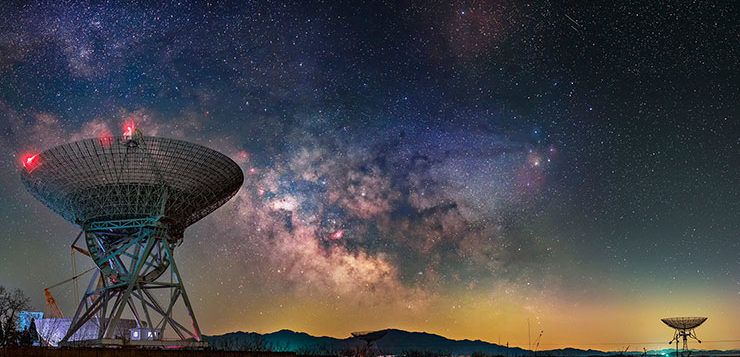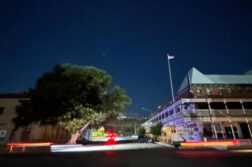In western nations, only America rivals Australia in terms of the government’s deep disdain for science, writes Chris Graham.
Behold a tweet overnight from Donald Trump, which well and truly puts his cards on the table when it comes to belief in climate change.
Patrick Moore, co-founder of Greenpeace: “The whole climate crisis is not only Fake News, it’s Fake Science. There is no climate crisis, there’s weather and climate all around the world, and in fact carbon dioxide is the main building block of all life.” @foxandfriends Wow!
— Donald J. Trump (@realDonaldTrump) March 12, 2019
The difference between Trump and Australia’s Coalition government, of course, is really only the courage of their convictions – Trump is prepared to state publicly he thinks it’s all crap. The Coalition hasn’t been prepared to do so for at least a few years.
But while our leaders are tearing themselves to pieces on the issue of climate change, they’re embracing science in another way, with the announcement this morning that Australia has signed a science treaty with five other nations – China, Italy, the Netherlands, Portugal, South Africa and the United Kingdom – to build the world’s largest, most powerful and most sensitive low frequency radio telescope.
It will be part of the Square Kilometre Array (SKA) Observatory, the world’s largest science facility. According to Minister for Industry, Science and Technology, Karen Andrews, Australia’s component of the SKA, SKA-Low, will be the world’s most sensitive low frequency radio telescope.
Hosted at CSIRO’s Murchison Radio-astronomy Observatory, it will initially comprise over 130,000 antennas spread over 65 kilometres in remote Western Australia.
“The signing of the international treaty is an incredible achievement for all countries involved and reinforces Australia’s leading role in this global project,” Andrews said.
“Australia will also be in a prime position to contribute to the design of new technologies, such as when CSIRO invented Wi-Fi as part of its work on radio astronomy.”
“Many great advancements in science can be attributed to exploration and pushing the boundaries of what is possible. Through this venture, our scientists will have access to data that will help unlock the mysteries of the universe.”
Indeed we will, one of which is where will we go when this planet is no longer habitable. The SKA Observatory should be very helpful in that regard.
The real reason for the Liberal-National support of the project appears to be embedded deep in the Minister’s press release: “Around $1 billion worth of contracts for the construction of the SKA are expected to start being awarded from late 2020 to companies and providers in the SKA’s member countries….”
Australia began pursuing the project in 2015, with the announcement of $294 million for the Square Kilometre Array, as part of the National Innovation and Science Agenda (NISA) in December 2015. A few months later it slashed the CSIRO’s budget by $115 million. Turns out investment in science investment pays off after all.
You can find out more information about the Square Kilometre Array project in Australia by visiting www.industry.gov.au/ska
Donate To New Matilda
New Matilda is a small, independent media outlet. We survive through reader contributions, and never losing a lawsuit. If you got something from this article, giving something back helps us to continue speaking truth to power. Every little bit counts.




